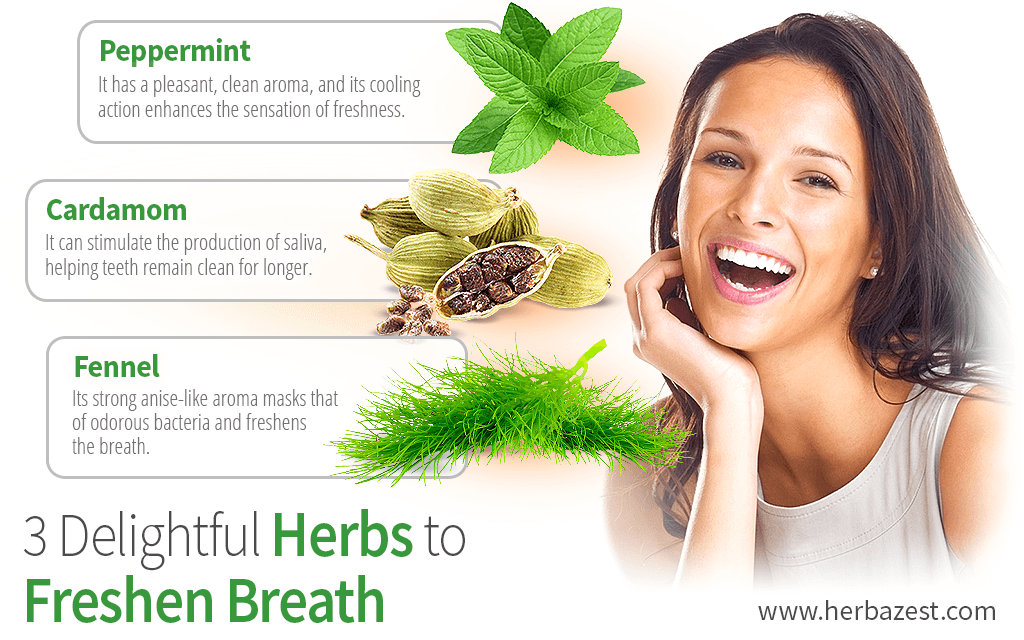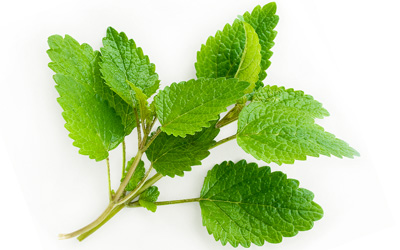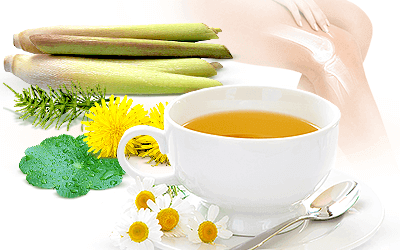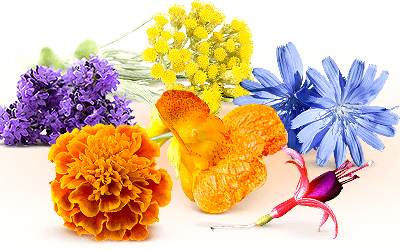Nobody wants to be known for having bad breath. Whether it's caused by eating odorous foods, smoking, drinking alcohol, gum disease, cavities, or simply through poor oral hygiene, bad breath is not only unhygienic, but it's socially frowned upon, too. When it comes to staying fresh, there's no substitute for good oral care, but it's not always convenient to disappear to the bathroom for a brush and floss. Keep a supply of the following herbs handy as a sugar-free way to banish bad breath and stay fresh.
1. Peppermint (Mentha x piperita)
It's no secret that peppermint is the go-to herb for oral hygiene. The main compound of this herb, mentol, is used as an ingredient in most toothpastes, chewing gums, and mouthwashes, it has a pleasingly clean aroma and cooling activities to enhance the sensation of freshness. Peppermint leaves and oil are also anti-inflammatory, meaning they can help against some conditions that cause bad breath, such as gingivitis.
2. Cardamom (Elettaria cardamomum)
The chemical composition and pleasant aroma of cardamom seed renders them effective breath-fresheners. Commonly used to banish bad breath in its country of origin, India, cardamom has a slightly nutty and woody aroma, and it provides a sweeter alternative to the somewhat clinical aroma of peppermint. It has been shown to kill oral pathogens, and it is also thought that it can stimulate the production of saliva to help clean teeth naturally.1
3. Fennel (Foeniculum vulgare)
Scientific studies on fennel have shown that the herb contains antimicrobial properties. It also has a strong anise-like aroma that masks that of odorous bacteria and freshens the breath in a way that's, again, less intense than peppermint.
Making Your Own Herbal Mouth Rinse
Use an herbal mouth rinse after consuming a strong-flavored meal or beverage, or simply as an addition to your oral hygiene routine. Adapt the herbs you use according to your preferred flavor and fragrance, or use a combination of them.
Put one tablespoon of the dried leaves or seeds of the herb of your choice into a pestle and mortar and crush until they are extremely fine, resembling a powder. Several drops of essential oil can also be used as an alternative to dried ground herbs.
Transfer the powder into a sealable container and add 750 mL of water. Fasten the lid and shake thoroughly to combine the contents. Your mouth wash is ready to use!
Like with ordinary mouthwash, it's best to avoid swallowing your homemade herbal version. Gargle a mouthful for 30 seconds, rinse with water, and follow up the process by checking that there are no herbal remnants lodged in your teeth.
Bad breath may be embarrassing, but it's usually avoidable. Keep peppermint leaves or gum on hand for a burst of freshness on occasions where brushing your teeth is inappropriate or inconvenient. When you brush your teeth, take care to do so thoroughly for approximately three minutes at a time - and don't forget to brush your tongue, as odorous bacteria can accumulate there, too. Floss after brushing, and follow up with a rinse of your herbal mouthwash to clear any bacteria you might have missed.
Sources
- Dental Research Journal, Cardamom comfort, 2012
- National Institutes of Health, Bad Breath | Peppermint
- NYU Langone Medical Center, Fennel
Footnotes:
- Ethnobotanical Leaflets. (2009). Antimicrobial Activity of Amomum subulatum and Elettaria cardamomum Against Dental Caries Causing Microorganisms. Retrieved March 8, 2022 from: https://opensiuc.lib.siu.edu/ebl/vol2009/iss7/3/







